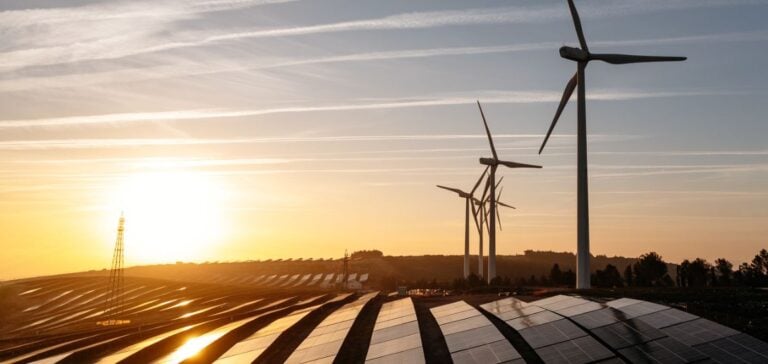In 2024, Portugal made significant strides in its energy policy by achieving 71% of electricity consumption from renewable sources. According to the national grid operator REN, this figure represents a historic record, supported by a strategic expansion of photovoltaic and hydropower capacities.
The total renewable electricity production reached 36.7 terawatt-hours (TWh), primarily divided among hydropower energy (28%), wind energy (27%), photovoltaic energy (10%), and biomass energy (6%). These results highlight the country’s ongoing efforts to reduce its dependence on fossil fuels and strengthen its position in the European green energy market.
Growth in renewable energy
Photovoltaic energy recorded an exceptional 37% growth year-on-year, driven by the accelerated integration of new infrastructure into the national grid. This progress aligns with an energy policy prioritizing technologies capable of meeting the growing demand for electricity.
Hydropower energy also contributed significantly to this momentum, with a 24% annual increase. This resource plays a key role in Portugal’s energy stability, particularly within the context of the global energy transition.
Decline in fossil fuel usage
Fossil fuel consumption, particularly natural gas, reached its lowest level since 2003, accounting for only 10% of total consumption. Natural gas, predominantly imported from Nigeria (53%) and the United States (41%), remains a residual energy source used to offset fluctuations in renewable energy.
This reduction demonstrates a deliberate strategy to limit costly fossil fuel imports while adhering to European climate commitments.
Political and economic challenges
This progress reflects the priorities of the Portuguese government, focusing on energy independence and the transition to a low-carbon economy. However, challenges remain, including the management of infrastructure for intermittent energy sources and aligning national policies with the goals of the European Green Deal.
By attracting investments in renewable energy, Portugal strengthens its position as a key player in European energy policy.





















